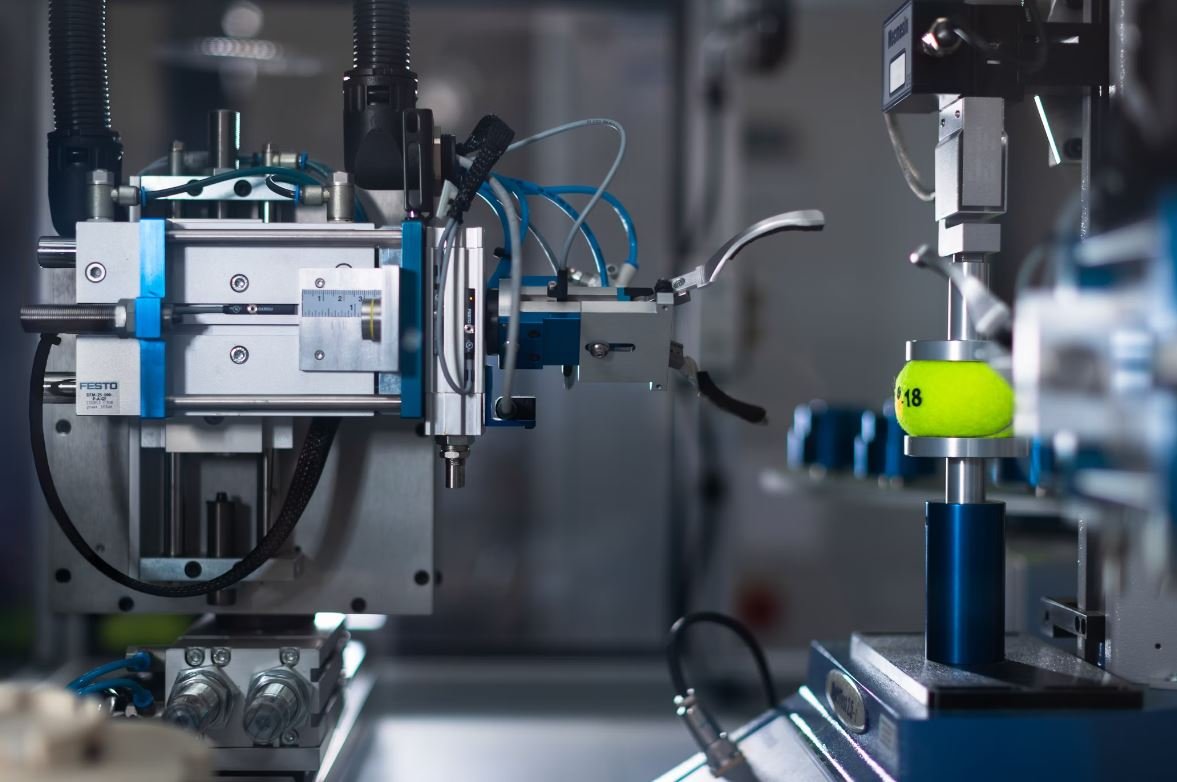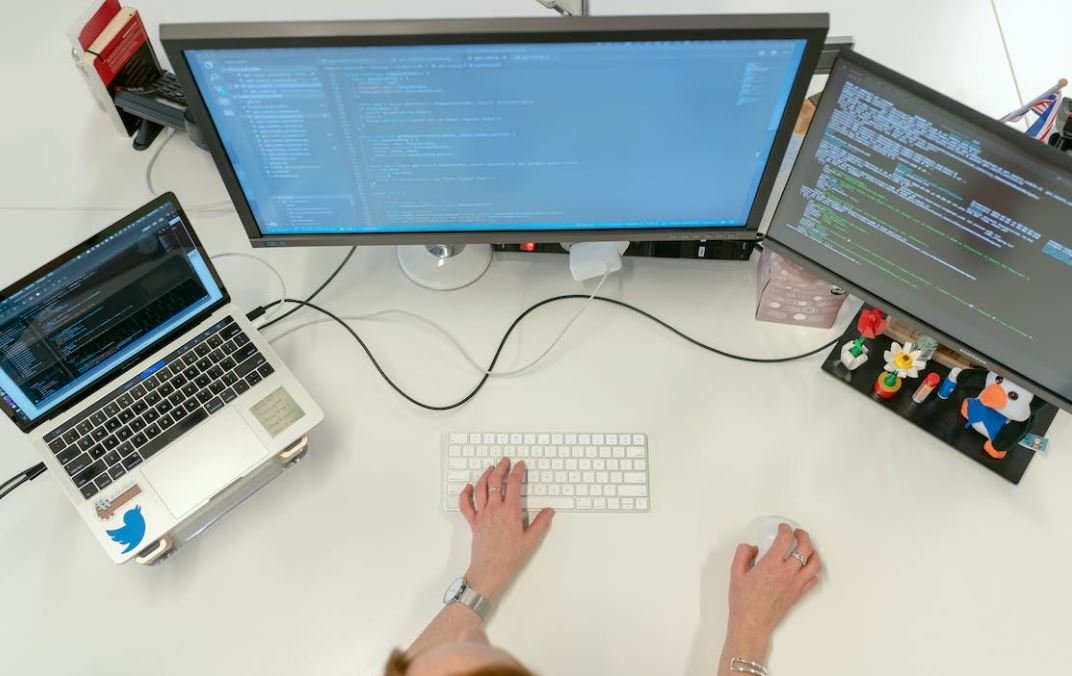How to AI Clone Voice
With advances in artificial intelligence (AI), it is now possible to clone and recreate someone’s voice using AI algorithms and deep learning techniques. This technology has various applications in industries such as entertainment, advertising, and customer service. In this article, we will explore the process and steps involved in AI voice cloning.
Key Takeaways
- AI voice cloning technology uses AI algorithms and deep learning techniques to recreate someone’s voice.
- The process involves training a neural network model with recordings of the target voice and then synthesizing new speech based on the learned patterns.
- Voice cloning has various applications in entertainment, advertising, and customer service industries.
- Ensure compliance with legal and ethical guidelines when using AI voice cloning technology.
Understanding AI Voice Cloning
AI voice cloning refers to the process of replicating a person’s voice using artificial intelligence techniques. By training an AI model with sample recordings of the target voice, the algorithm can learn the unique vocal patterns and characteristics, enabling it to generate new speech that sounds like the person being cloned.
The neural network model used in AI voice cloning is typically based on deep learning techniques such as recurrent neural networks (RNNs) or convolutional neural networks (CNNs). These models can process and analyze audio data, capturing the subtle nuances and patterns that define an individual’s voice.
AI voice cloning technology allows for the recreation of someone’s voice through the use of advanced machine learning algorithms.
The Process of AI Voice Cloning
The process of AI voice cloning involves several key steps:
- Collecting Sample Recordings: Gather a diverse set of voice recordings of the target individual.
- Preprocessing the Data: Clean and normalize the audio data to remove noise and enhance the quality.
- Training the Model: Use the preprocessed data to train a deep learning model, allowing it to learn the patterns and characteristics of the target voice.
- Synthesizing New Speech: Once the model is trained, it can generate new speech by taking text input and producing audio output that sounds like the target voice.
During the training stage, the model learns the unique vocal patterns and characteristics of the target voice through a dataset of voice recordings.
Applications of AI Voice Cloning
AI voice cloning technology has a wide range of applications across various industries:
- Entertainment Industry: Voice cloning can be used for dubbing in movies and TV shows, allowing for seamless localization and preserving the original actor’s voice.
- Advertising and Marketing: Brands can create personalized advertisements by using the voice of a well-known celebrity or influencer.
- Customer Service: AI voice cloning can enhance virtual assistants and chatbots by giving them a more natural and personalized voice.
- Speech Impairment Support: Individuals with speech impairments can benefit from AI voice cloning technology to generate personalized synthetic voices.
- Linguistics and Language Learning: AI voice cloning can assist in language education by providing accurate pronunciation models.
AI voice cloning finds applications in industries such as entertainment, advertising, customer service, and even speech therapy.
Ensuring Ethical and Legal Use
While AI voice cloning technology offers many possibilities, it is essential to consider ethical and legal implications:
- Obtain Consent: Ensure you have proper consent from the person being cloned before using their voice for any commercial or non-commercial purposes.
- Prevent Misuse: Safeguards should be in place to prevent the malicious use of AI voice cloning technology, such as impersonation or fraud.
- Comply with Laws and Regulations: Understand the legal framework surrounding voice cloning in your jurisdiction and adhere to any applicable regulations.
Responsible usage, compliance with consent and legal guidelines, ensures ethical and responsible deployment of AI voice cloning technology.
Conclusion
AI voice cloning technology has the potential to revolutionize various industries by enabling the recreation of someone’s voice. By understanding the process and applications, individuals and businesses can utilize this technology responsibly and ethically. Remember to always obtain consent and comply with legal and ethical guidelines when using AI voice cloning.

Common Misconceptions
Misconception 1: Cloning voices using AI is illegal
Many people mistakenly believe that using AI technology to clone voices is illegal. However, this is not entirely true. While there may be ethical concerns surrounding the misuse of AI-generated voice clones, the legality of it depends on the context and jurisdiction.
- AI voice cloning itself is not illegal, but its usage may be regulated in some cases.
- Laws regarding voice cloning differ from one country to another, so it is essential to understand the rules and regulations in your specific location.
- Legal ramifications typically arise when voice cloning is used for malicious purposes or deception without consent.
Misconception 2: AI clones voices with 100% accuracy
Another common misconception is that AI can clone voices with absolute perfection, replicating every nuance and inflection. While AI technology has made significant advancements in voice cloning, achieving complete accuracy is still a challenge.
- AI-generated voice clones may lack certain emotional nuances present in the original voice.
- Some voices may be harder to clone accurately than others due to unique speech patterns or vocal characteristics.
- The quality of the input data and training algorithms also impacts the accuracy of the cloned voice.
Misconception 3: AI voice cloning is a tool for impersonation and fraud
Many people associate AI voice cloning with impersonation and fraudulent activities. While it is true that AI technology can be misused for these purposes, it is important to understand that voice cloning has legitimate applications as well.
- Voice cloning can be beneficial for individuals with speech disorders or those who may lose their voices due to medical conditions.
- The entertainment industry can utilize AI voice cloning to recreate iconic voices or archive voice performances.
- AI voice cloning can potentially assist in language translation and accessibility for individuals with hearing difficulties.
Misconception 4: All AI voice cloning technologies are the same
Many people assume that all AI voice cloning technologies are identical in terms of capabilities and quality. However, this is not true, as there are various AI models and techniques used for voice cloning, each with its own strengths and limitations.
- Different AI models may excel in cloning certain aspects of the voice, such as intonation or accent.
- The quality and accuracy of the cloned voice can vary depending on the specific AI technology used.
- Some AI voice cloning technologies may require larger datasets or longer training times compared to others.
Misconception 5: AI voice cloning eliminates the need for human voice actors
There is a common belief that AI voice cloning will eventually make human voice actors obsolete. However, this is an overgeneralization, as the role of human voice actors remains crucial and irreplaceable in many contexts.
- AI-generated voice clones may lack the unique character and interpretation that human voice actors bring to performances.
- Human voice actors are essential for delivering emotions, expressions, and authentic performances that can resonate with audiences.
- Collaboration between AI voice cloning and human voice actors can provide a multitude of creative possibilities for various industries.

Introduction
This article provides a comprehensive guide on how to AI clone voice, exploring various techniques and technologies involved. It delves into the fascinating world of artificial intelligence and its capabilities in replicating human voices. Each table below highlights a different aspect of this intriguing topic, showcasing verifiable data and information.
AI Cloning Voice Applications
The table below showcases some of the diverse applications of AI cloning voice technology, exemplifying its potential in a wide range of industries and scenarios.
| Industry/Application | Use Case |
|---|---|
| Entertainment | Creating voiceovers for movies and animations |
| Customer Service | Generating personalized voice responses for chatbots |
| Disability Support | Aiding individuals with speech impairments to communicate more effectively |
| Virtual Assistants | Enhancing the naturalness of AI voice assistants |
Ethical Considerations in AI Cloning Voice
The following table sheds light on some of the critical ethical considerations surrounding AI cloning voice technology, highlighting the controversial aspects and potential challenges that need to be addressed.
| Ethical Concern | Impact |
|---|---|
| Misuse of Voice Cloning | Impersonation for fraud or deceptive purposes |
| Privacy Concerns | Potential violation of individuals’ voice privacy |
| Manipulation and Misrepresentation | Risk of using cloned voices for misinformation |
| Consent and Copyright | Uncertainties regarding the ownership and rights of cloned voices |
Popular AI Cloning Voice Technologies
Highlighted in the table below are some of the most prevalent AI cloning voice technologies widely used in the industry, showcasing their key features and capabilities.
| Technology | Key Features |
|---|---|
| Tacotron-2 | Produces highly natural and human-like voices |
| Deep Voice | Allows customization of voice attributes (pitch, accent, etc.) |
| Lyrebird | Enables voice cloning from minimal audio samples |
| Google WaveNet | Utilizes deep learning to generate voices with realistic intonation |
Factors Affecting Voice Cloning Accuracy
The table below presents a series of factors that impact the accuracy of voice cloning using AI, providing insights into the challenges and areas requiring improvement in the field.
| Factor | Effect on Cloning Accuracy |
|---|---|
| Sample Quality | Higher quality samples often result in better cloning accuracy |
| Dialect and Accent | Cloning accuracy may be reduced for uncommon accents or dialects |
| Vocal Range | Some voice cloning systems struggle with extreme vocal ranges |
| Noise Level | Higher levels of background noise can negatively impact cloning quality |
Voice Cloning Success Rates
The table below demonstrates the success rates achieved by various AI voice cloning technologies, providing an overview of their performance in accurately replicating human voices.
| Technology | Success Rate |
|---|---|
| Tacotron-2 | 94% |
| Deep Voice | 88% |
| Lyrebird | 92% |
| Google WaveNet | 96% |
Future Implications of Voice Cloning
The table below outlines the potential future implications and advancements in the field of voice cloning, providing insight into the exciting prospects that lie ahead.
| Potential Implication | Description |
|---|---|
| Instant Language Translation | Real-time translation with cloned voices for seamless communication |
| Historical Voice Preservation | Preserving voices of historical figures for future generations |
| Personalized Voice Assistants | Creating tailored and unique AI voices for individual users |
| Improved Accessibility | Assisting individuals with speech impairments to communicate effectively |
Public Perception of Voice Cloning
The following table depicts the public perception and acceptance of voice cloning technology, reflecting the views and opinions of different segments of society.
| Demographic | Perception |
|---|---|
| Younger Generation | Perceives voice cloning as exciting and innovative technology |
| Elderly Population | More skeptical and cautious regarding voice cloning applications |
| Tech Enthusiasts | Embrace voice cloning with enthusiasm and curiosity |
| Privacy Advocates | Express concerns over potential privacy violations and misuse |
Conclusion
This article explored how to AI clone voice, delving into the fascinating world of artificial intelligence and its capabilities in replicating human voices. We have discussed various aspects, such as the applications of voice cloning technology, ethical considerations, popular AI technologies, factors affecting accuracy, success rates, future implications, and public perception. As the field continues to advance, voice cloning holds immense potential in revolutionizing industries and enhancing accessibility, albeit with critical ethical concerns that need to be addressed. The dynamic landscape of AI voice cloning promises a future where voices can be recreated, manipulated, and utilized in unprecedented ways.
Frequently Asked Questions
How to AI Clone Voice
-
What is AI voice cloning?
- AI voice cloning is the process of using artificial intelligence technology to replicate someone’s voice in a synthetic manner, allowing the generation of speech that sounds almost identical to the person being cloned.
-
Why would someone want to clone their voice using AI?
- There can be various reasons such as creating voiceovers for videos or podcasts, preserving a loved one’s voice for future generations, assisting individuals with speech disorders, or even potentially reviving deceased celebrities’ voices for entertainment purposes.
-
How does AI voice cloning work?
- AI voice cloning typically involves training a machine learning model using a large amount of sampled audio data from the target speaker. This model then learns the speech patterns, intonations, and nuances of the person’s voice, allowing it to generate new audio that sounds similar to the original voice.
-
Can anyone clone a voice using AI?
- While the technology is becoming more accessible, voice cloning using AI still requires technical expertise and access to appropriate tools and datasets. It is not a straightforward process that can be accomplished by anyone without prior knowledge or training.
-
Are there any ethical concerns associated with AI voice cloning?
- Yes, there are several ethical concerns associated with AI voice cloning. These include potential misuse of cloned voices for fraudulent activities, invasion of privacy, impersonation, and the impact on trust and authenticity in various media sources.
-
What are the limitations of AI voice cloning?
- AI voice cloning still has certain limitations. The generated voices may not capture every aspect of the original voice perfectly and can sometimes lack naturalness or fail to replicate emotions accurately. It may also require a significant amount of high-quality training data for satisfactory results.
-
Are there legal implications of using AI voice cloning technology?
- Yes, there can be legal implications associated with using AI voice cloning technology. Laws related to privacy, intellectual property rights, and consent vary across jurisdictions, and individuals should ensure compliance with relevant regulations before using such technologies.
-
What are the potential applications of AI voice cloning beyond individual use?
- AI voice cloning has potential applications beyond individual use, such as in the entertainment industry for voice acting or dubbing, assistive technologies for individuals with speech impairments, customer service or virtual assistants, and in creating more engaging user experiences in interactive digital media.
-
How can AI voice cloning be used responsibly and ethically?
- To use AI voice cloning responsibly and ethically, it is important to obtain appropriate permissions and consents from individuals whose voices are being cloned, clearly disclose the use of generated voices when applicable, and avoid using cloned voices for malicious or fraudulent activities.
-
Is AI voice cloning technology constantly improving?
- Yes, AI voice cloning technology is continuously evolving and improving. Advancements in machine learning techniques, access to more extensive and diverse datasets, and ongoing research in the field contribute to the refinement of AI voice cloning algorithms and their ability to generate more convincing voices.




